Suppose, I run get 't1','r1' command in hbase shell, How does HBase internally analysis and execute this command?
Asked
Active
Viewed 686 times
1 Answers
2
This is a jruby script. which was defined under set of shell commands.
I am quoting here java HashMap as an example for better understanding..
- while inserting , Your rowkey is just like key in java HashMap which will be stored in one of the region server(in hash map case these are buckets which are uniformly distributed..)
- While getting back the row, it uses rowkey and it will locate particular region server and brings the value for that, from the table you mentioned.

That's the reason while dealing with hbase rowkey design should be perfect (with salting technique , using hashing algorithm for ex: mumur hash) and it should be uniformly distributed across region servers to prevent hot spotting...
For more details, have a look at get.rb
module Shell
module Commands
class Get < Command
def help
return <<-EOF
Get row or cell contents; pass table name, row, and optionally
a dictionary of column(s), timestamp, timerange and versions. Examples:
hbase> get 'ns1:t1', 'r1'
hbase> get 't1', 'r1'
hbase> get 't1', 'r1', {TIMERANGE => [ts1, ts2]}
hbase> get 't1', 'r1', {COLUMN => 'c1'}
hbase> get 't1', 'r1', {COLUMN => ['c1', 'c2', 'c3']}
hbase> get 't1', 'r1', {COLUMN => 'c1', TIMESTAMP => ts1}
hbase> get 't1', 'r1', {COLUMN => 'c1', TIMERANGE => [ts1, ts2], VERSIONS => 4}
hbase> get 't1', 'r1', {COLUMN => 'c1', TIMESTAMP => ts1, VERSIONS => 4}
hbase> get 't1', 'r1', {FILTER => "ValueFilter(=, 'binary:abc')"}
hbase> get 't1', 'r1', 'c1'
hbase> get 't1', 'r1', 'c1', 'c2'
hbase> get 't1', 'r1', ['c1', 'c2']
hbase> get 't1', 'r1', {COLUMN => 'c1', ATTRIBUTES => {'mykey'=>'myvalue'}}
hbase> get 't1', 'r1', {COLUMN => 'c1', AUTHORIZATIONS => ['PRIVATE','SECRET']}
hbase> get 't1', 'r1', {CONSISTENCY => 'TIMELINE'}
hbase> get 't1', 'r1', {CONSISTENCY => 'TIMELINE', REGION_REPLICA_ID => 1}
Besides the default 'toStringBinary' format, 'get' also supports custom formatting by
column. A user can define a FORMATTER by adding it to the column name in the get
specification. The FORMATTER can be stipulated:
1. either as a org.apache.hadoop.hbase.util.Bytes method name (e.g, toInt, toString)
2. or as a custom class followed by method name: e.g. 'c(MyFormatterClass).format'.
Example formatting cf:qualifier1 and cf:qualifier2 both as Integers:
hbase> get 't1', 'r1' {COLUMN => ['cf:qualifier1:toInt',
'cf:qualifier2:c(org.apache.hadoop.hbase.util.Bytes).toInt'] }
Note that you can specify a FORMATTER by column only (cf:qualifier). You cannot specify
a FORMATTER for all columns of a column family.
The same commands also can be run on a reference to a table (obtained via get_table or
create_table). Suppose you had a reference t to table 't1', the corresponding commands
would be:
hbase> t.get 'r1'
hbase> t.get 'r1', {TIMERANGE => [ts1, ts2]}
hbase> t.get 'r1', {COLUMN => 'c1'}
hbase> t.get 'r1', {COLUMN => ['c1', 'c2', 'c3']}
hbase> t.get 'r1', {COLUMN => 'c1', TIMESTAMP => ts1}
hbase> t.get 'r1', {COLUMN => 'c1', TIMERANGE => [ts1, ts2], VERSIONS => 4}
hbase> t.get 'r1', {COLUMN => 'c1', TIMESTAMP => ts1, VERSIONS => 4}
hbase> t.get 'r1', {FILTER => "ValueFilter(=, 'binary:abc')"}
hbase> t.get 'r1', 'c1'
hbase> t.get 'r1', 'c1', 'c2'
hbase> t.get 'r1', ['c1', 'c2']
hbase> t.get 'r1', {CONSISTENCY => 'TIMELINE'}
hbase> t.get 'r1', {CONSISTENCY => 'TIMELINE', REGION_REPLICA_ID => 1}
EOF
end
def command(table, row, *args)
get(table(table), row, *args)
end
def get(table, row, *args)
@start_time = Time.now
formatter.header(["COLUMN", "CELL"])
count, is_stale = table._get_internal(row, *args) do |column, value|
formatter.row([ column, value ])
end
formatter.footer(count, is_stale)
end
end
end
end
#add get command to table
::Hbase::Table.add_shell_command('get')
if you want to get one record similarly like hbase shell command, you can follow below snippet.
Update based on your comment : if you want to have same functionality in java
/**
* Get a row
*/
@Override
public void getOneRecord(final String tableName, final String rowKey) throws IOException {
final HTable table = new HTable(HBaseConn.getHBaseConfig(), getTable(tableName));
final Get get = new Get(rowKey.getBytes());
final Result rs = table.get(get);
for (final KeyValue kv : rs.raw()) {
LOG.info(kv.getRow() + " " + kv.getFamily() + ":" + kv.getQualifier() + " " + +kv.getTimestamp());
LOG.info(new String(kv.getValue()));
}
}
Note : There java approach and shell approach are 2 different things. pls. don't mix both, as I have seen your other questions as well, I think you are bit confused about them. If you want to write jruby just like I explained you can also do as well. but that was not common approach.
Hope that helps.
Ram Ghadiyaram
- 28,239
- 13
- 95
- 121
-
I want to overwrite "hbase shell command" by **Java**, then I can send "hbase shell command" directly in Java project. how to do? Like this: `public static void main(String args[]) {` `// get Connection to connect hbase` `Connection conn = ....;` `// hbase shell command` `String cmd = "get 't1','r1'";` `ResultSet rs = conn.execute(cmd);` `}` – Guo Sep 21 '16 at 02:19
-
what is your requirement, why you wanted to do that ? – Ram Ghadiyaram Sep 21 '16 at 03:38
-
I want to develop a WEB UI using Java or JSP, and I can send "hbase shell command" by WEB UI. – Guo Sep 21 '16 at 13:31
-
as I mentioned below you can execute through `Runtime` class or `ProcessBuilder` class to invoke hbase shell and executing the command. But you asked for internal working of get command I gave. see my answer in this http://stackoverflow.com/questions/35866640/execute-spark-submit-programmatically-from-java?noredirect=1&lq=1 to execute a shell command(either shell script or hbase shell
). Hope this time you wont get confused :-) – Ram Ghadiyaram Sep 21 '16 at 14:06 -
I was just thinking why you need to integrate jsp + hbase shell command as web ui ? if you want to display results of Hbase there are several other ways to do it like solr + solrj can render results to REST api? Is there any valid reason for that ? – Ram Ghadiyaram Sep 21 '16 at 16:40
-
Thank you for your comment and your patience! – Guo Sep 22 '16 at 00:48
